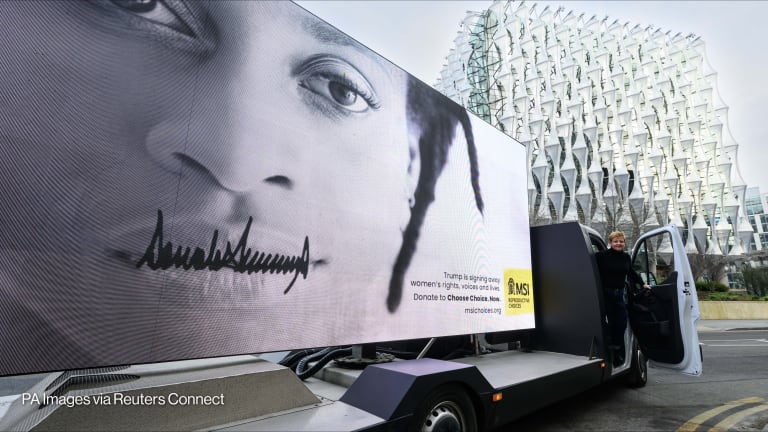
BARCELONA — The United Kingdom should not be “browbeaten” by the United States into changing its stance on sexual and reproductive health and rights, among other health issues, said U.K. politicians during a debate on universal health coverage Wednesday.
“The Trump administration is clearly standing in the way of many of the things we’ve talked about [during this debate], not least SRHR,” said Stephen Twigg, a Labour member of parliament and chair of the International Development Committee, the cross-party group that scrutinizes aid spending.
Under President Donald Trump, the Mexico City Policy — or “global gag rule” — took effect in the U.S. in 2017, expanded from its original form to prohibit foreign NGOs that receive any U.S. global health funding from engaging in abortion or abortion-related activities.
Healthy Access:
► Q&A: Peter Sands on what it takes to create effective health systems
► SRHR, UHC, and the search for increased domestic funding
► Without 'concrete' directives, new UHC agreement could fall flat
More recently, the policy has been expanded yet again to prevent organizations affected by the rule from funding other groups that engage in abortion services and information.
The Trump administration also defunded UNFPA, and has tempered language on access to SRHR in international agreements.
With reproductive rights under increasing threat from “some developed nations,” said Alistair Burt, a Conservative MP and former minister in the Department for International Development and Foreign & Commonwealth Office, the U.K. must not waiver on its own commitment to the issue as part of the broader UHC agenda.
“It’s essential the U.K. follows its own path and is not browbeaten by any of its larger partners or friends into offering restrictive SRHR health facilities just because someone doesn’t like them for other reasons,” he said.
The U.K. government did not contribute to the She Decides movement launched by international governments to fill the funding gap in the wake of the global gag rule. However, it launched a major new program targeted at increasing the use of family planning and preventing unsafe abortions in 2018.
Burt, who resigned earlier this year as a result of ongoing Brexit disputes, also asked the sector not to forget the U.S.’s previous generosity and to look beyond the current U.S. administration.
“There is a great risk of confusing the U.S. in general with elements of the administration and that would be unfair,” he said.
In the 2018 fiscal year, the U.S. spent $10.8 billion to make it the largest global health donor, although this is expected to fall for 2019.
Twigg called upon the U.K. to remain a leader in the push for UHC and work with other countries to help increase their health spending to 5% of their gross national income. It follows the U.K.’s increased pledge of £1.4 billion to The Global Fund earlier this month.
For a closer look at the innovative solutions designed to push for progress on universal health coverage around the globe, visit the Healthy Access series here.

Search for articles
Most Read
- 1
- 2
- 3
- 4
- 5








